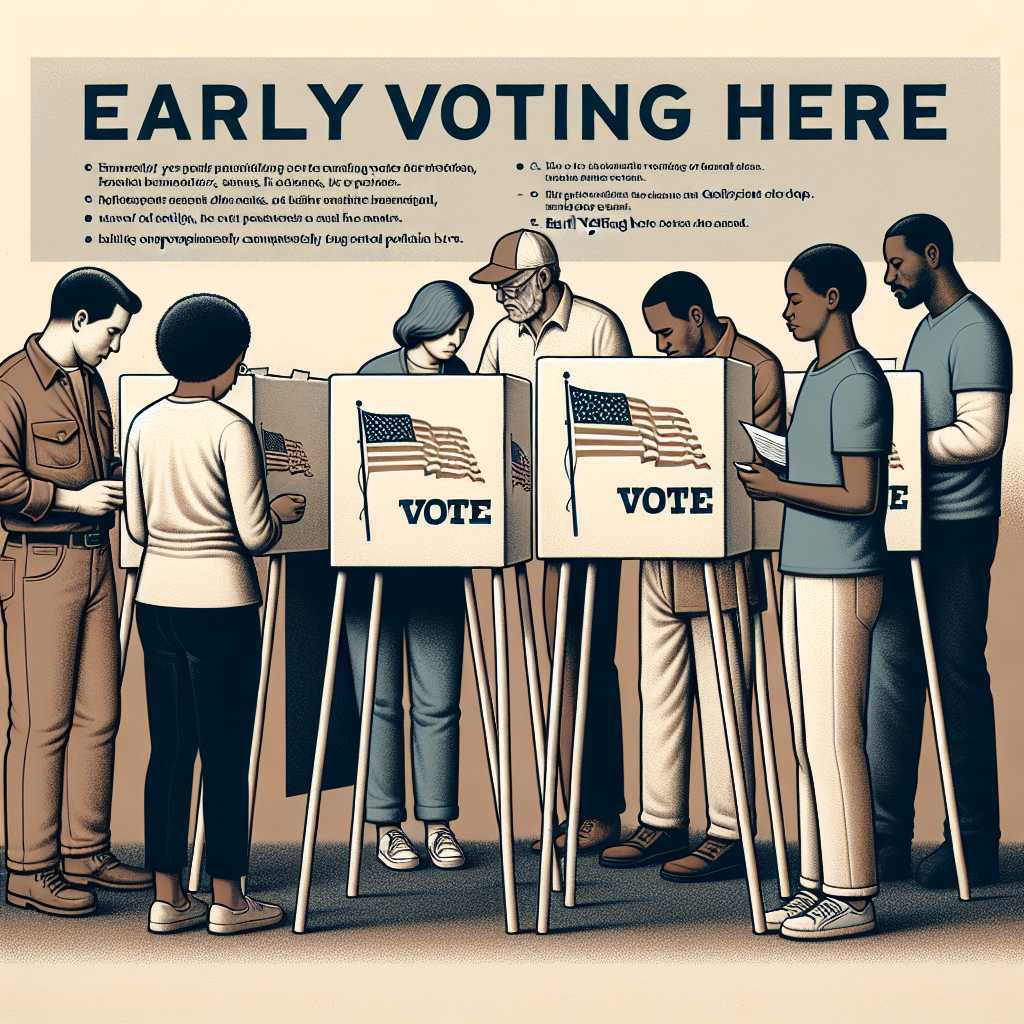The Importance and Impact of Early Voting in Democratic Societies
Early voting is a vital aspect of the electoral process in many democratic societies. It is a mechanism that has been adopted to increase voter participation, improve the administration of elections, and reduce the pressure on voting systems on election days. Early voting allows registered voters to cast their ballots before the scheduled election day. Over the years, early voting has shown significant impacts on voter turnout and election outcomes, becoming an important topic of political analysis and public discussion.
Understanding Early Voting: Definition and Mechanisms
Early voting can take various forms across different jurisdictions but generally includes methods that allow casting a vote ahead of the traditional polling day. This can include absentee voting, mail-in voting (including no-excuse absentee and vote-by-mail systems), in-person early voting at designated locations, and advance polling days.
Absentee voting often requires voters to request a ballot which they can fill out and return by mail or in person before the designated election day. In some cases, a valid reason might be required to be eligible for an absentee ballot, while ‘no-excuse’ systems allow any voter to request an absentee ballot without providing justification.
Mail-in voting includes more extensive measures, such as automatically sending all registered voters a ballot which they can mail back or drop off at specific locations. In-person early voting, meanwhile, involves opening polling stations during a predetermined period leading up to the election day where voters can cast their ballots in exactly the same manner as they would on election day itself.
The Advantages of Early Voting
Promoting Voter Participation
One of the most compelling advantages of early voting is that it increases accessibility. By extending the voting period, it accommodates voters with different schedules and responsibilities that might prevent them from reaching the polls on a single designated day.
Alleviating Election Day Logistical Challenges
Early voting also serves to dissipate the overcrowding of polling stations on Election Day itself. With fewer people heading to cast their vote at the same time, it’s easier for election officials to manage resources effectively, ensuring voters have a smoother experience and reducing the strain on administrative systems.
Extending Voter Engagement Periods
A longer voting period means that campaigns can focus their engagement efforts over an extended timeline, allowing for more substantial discourse and providing citizens ample time to consider their choices indepth.
Concerns and Criticisms of Early Voting
While several stakeholders promote early voting as enabling greater inclusivity and efficiency, some critics cite potential pitfalls. Concerns revolve around the integrity of early votes since mailed ballots could potentially be subject to fraud, coercion or mishandling. Additionally, since political campaigns can evolve significantly in their final stages, early voters might make decisions without the benefit of late-breaking information that could influence their choice.
Early Voting Trends and Statistics
Early voting has grown in popularity in many countries, particularly in the United States where early ballots account for an increasing percentage of total votes cast in federal elections. Variations exist not only internationally but also within countries; for instance, states in the U.S. have different laws and periods for early voting.
Global Perspective on Early Voting
Different countries adopt various approaches regarding early voting, based upon cultural norms, historical contexts, and legal frameworks. Examples range from established systems such as in Sweden, where advance voting is highly utilized, to emerging practices in other nations seeking to expand voter participation.
The Impact of COVID-19 on Early Voting
The global pandemic led to significant alterations in election procedures with more emphasis on early and mobile vote options to accommodate social distancing regulations. These changes may have lasting effects on how elections are conducted moving forward.

